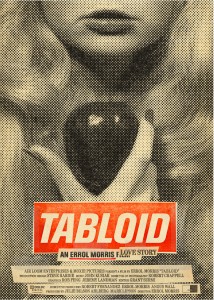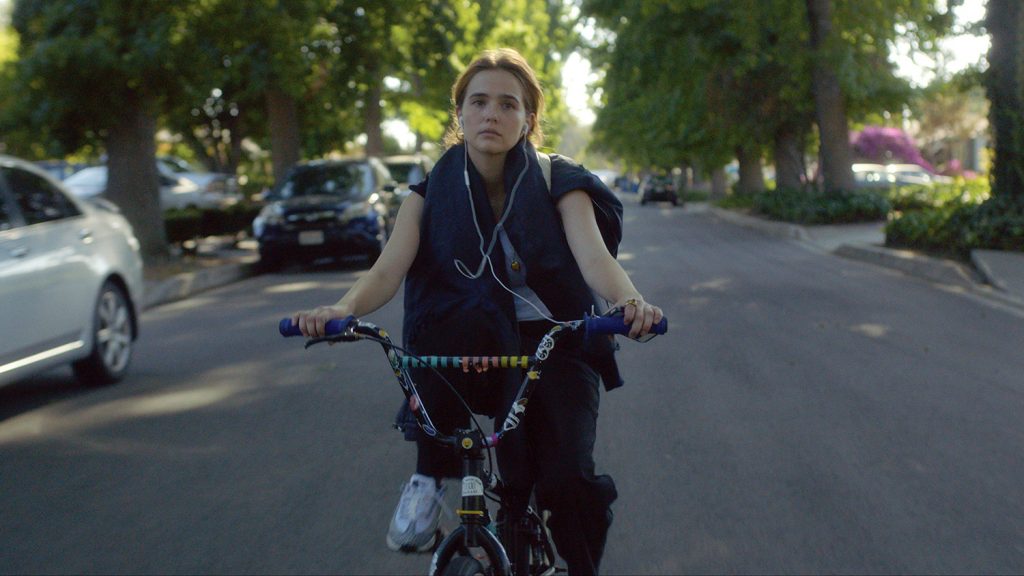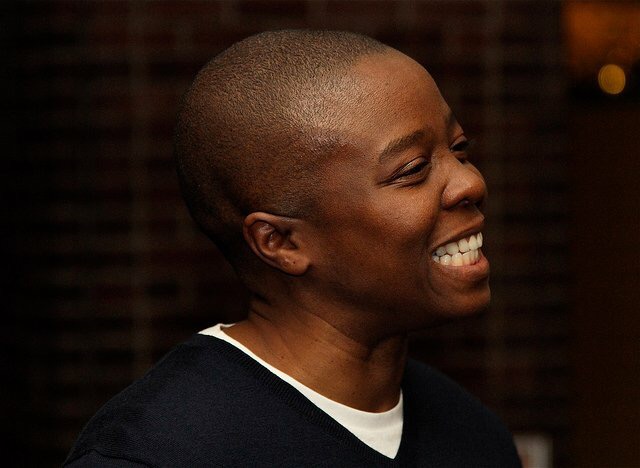 Directed by Errol Morris
Directed by Errol Morris
Produced by Julie Bilson Ahlberg & Mark Lipson
Released by Sundance Selects
USA. 87 min. Rated R
[Article originally appeared: http://film-forward.com/tabloid.html]
Newspapers recently published the obituary of Randall Dale Adams. The name might not ring a bell for many, but Adams was the subject of Errol Morris’s earlier film “The Thin Blue Line”. Adams had been serving time in prison, mistakenly, for the murder of a Dallas police officer. Morris was working on another film project in Dallas at the time and only gotten wind of Adams’s story and some of its dubious facts just by chance. His investigation would lead to the making of the 1988 seminal documentary, and subsequently to Adams’s release.
Now, some 22 years later, Adams has succumbed to a brain tumor, dying last October. It turns out that Morris had found out about the death through a friend, and the press only picked up the story after the filmmaker tweeted about the fact. This event bring up the question, what happens to Morris’s subjects after the cameras have been turned off. The answer in the case of his new film, “Tabloid”, is much more readily available. Not that anyone could have foreseen it.
The movie has not even been released yet (as this is being written anyway) and already its subject, former beauty queen Joyce McKinney, has been witnessed acting bizarrely at several advanced screenings. Sadly, this reviewer was not privy to any of those events. But reports have her condemning the movie and its filmmaker during an impromptu question and answer session following a screening, and at least once in the presence of Morris. To his credit, he let her have her say and rarely interrupted. He seemed to be enjoying himself.
McKinney’s story—as bizarre as it—was probably only exasperated due to her narcissistic need for attention. To sum it up, when McKinney was a young woman, she had fallen deeply for a Mormon who chose his religion over her. Not being able to accept the rejection, she convinced herself that he had been brainwashed, or so one can deduct. She subsequently hired a private investigator, who found her ex-boyfriend in England, and then went on to kidnap him. She’s arrested, goes to jail, and becomes a U.K. tabloid sensation covered ceaselessly by both The Daily Mirror and Daily Express. Journalists dig up evidence that she had been a past nudie cutie with leanings towards S&M, though she patently denies it to this day. After jumping bail, Joyce moves back the U.S., where she becomes obsessive with Booger, her pit bull—to the advantage of genetic science.
Bizarre? You bet. Funny? Often. The question I am certain Morris gets most often is, why this subject? Is it in response to the glut of reality television and the unquenchable thirst the public has for the limelight? That explanation seems to fit. But as you watch the extended interviews with McKinney throughout the film, you get the sense that perhaps there is an underlying meta-theme going on here. With McKinney, Morris has truly found a sensational subject, and by simply aiming his camera on her, or by letting her rant on in public appearances, he has found the ultimate clown, someone whose entire life has been at odds with the need to be the center of attention. Of course, another explanation for the movie might have been to just lighten up after making “The Fog of War” (2003) and “Standard Operating Procedure” (2008). Those two films, about Robert S. McNamara’s role in Vietnam and the torture that transpired in Abu Ghraib, respectively, were both pretty intense films. “Tabloid” never gets anywhere close in that respect and just skirts the line of mocking its subject. One leaves the experience feeling slightly complicit. But then again, that seems to be the point.





